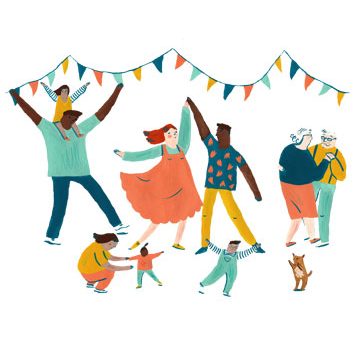by Deacon Roger Carr-Jones, Marriage and Family Life Coordinator
There are many things that can be a source of embarrassment in daily life, especially in a work context, when we do or say something without engaging our brain. I am sure that we have all had those moments when we had rather wished that we had taken time, focused on the matter in hand and then made the right decision. Admitting that we were mistaken even in a work context often takes courage as pride tends to take the upper hand. This came home to me recently when, in my haste, I misread a date and therefore went off on a tangent explaining why something was impossible, only to discover too late that the query was a year ahead! We all make mistakes, but it is how we manage them that matters.
Thinking of a misunderstanding in a work setting might be helpful, as it allows us to explore the need to say sorry and to seek forgiveness in the context of married life. At work there are inbuilt constraints that determine our behaviour and action. At home we tend to have our defenses down and so can say or do things that we do not intend. The place of pride then tends to get in the way so that communication lines become disrupted and the harmony that we desire in our vocation gets lost.
We may notice and react to those times when the disagreement widens and so seek a solution. However, it is often the small unresolved misunderstandings, petty annoyances and hurts that cause the greatest harm in the long run. This is why we need to continually cultivate the bedrock of our shared vocation and ensure that we use the tools that good marriage preparation and ongoing enrichment can provide. At work we tend to learn from our mistakes, which is part of the learning cycle. Are we as attentive to learning in the context of the home, or do we tend to brush disagreements under the carpet? This can work until the debris builds up and we both trip over!
Recognising that the dynamics of a relationship touch us on the spiritual, emotional and relational level is a good way of understanding that our needs are complex and how we communicate is essential. Communication, rather like our behaviour patterns, are learnt skills. How we behave at the office, with friends, or at home will undoubtedly differ. Yet, we may not notice that this is what we are doing and why.
Looking at the way we communicate in our relationship and knowing where we want to be is an ongoing task. Marriage Care’s relationship model highlights that we all desire to be at that point of a 'committed stable relationship' where we feel loved and secure. It is a myth to think that if we have disagreements, we are not meant for each other. What matters is how we respond to those disagreements, those niggles and hurts. Rather than brushing them under the carpet, how about working through them together, which will strengthen the marriage bond, bringing us closer together?
Within the vocation of marriage, we will discover many other vocations as we jointly respond to the changes that come along: family, work, caring and challenge to name but a few. All relationships will experience their ups and downs as two different personalities come to be moulded into a new way of living. Misunderstandings in a relationship can stem from many sources and one like the example at the beginning can be the result of worry, pressure and the need to understand what was said or asked. Having discerned and made the decision to get married we then embark on the next stage of the journey. The road can at times be bumpy, but facing difficulties together can be a source of huge joy! So, don't worry about the egg on your face; wipe it away together, perhaps laugh as you do so, and have confidence in the love you share with one another!




